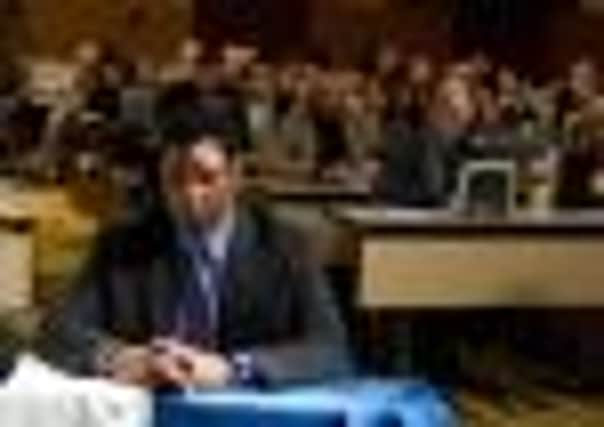Film review: Flight starring Denzel Washington


Flight (15)
Directed by: Robert Zemeckis
Starring: Denzel Washington, Don Cheadle, Kelly Reilly, John Goodman,
* *
With a beer in his hand, a beautiful woman in his bed and some lines of cocaine at the ready, he fields an exasperated phone call from his ex-wife and readies himself for his working day. It’s the sort of scene that’s been done dozens of times before: a quick set-up detailing some bad behaviour, followed by a reveal that – wait for it – the person we’re going to be spending time with in the movie with is actually a cop or a public official or some other flawed figure in a position of responsibility.
Advertisement
Hide AdFlight doesn’t even try to combat this cliché. Instead it embraces it wholeheartedly by having Whip slip on the hat, aviator shades and epaulette-decorated shirt of a commercial airline pilot. He’s all set for a day of literally and figuratively flying high, and while subtlety in this respect is certainly not one of Flight’s strong points, at this stage, all that matters film is getting us on Whip’s side. Here, director Robert Zemeckis smartly capitalises on Washington’s easy-going star quality to show how effortlessly likeable this high-functioning alcoholic is. He flirts with the hostesses, relaxes the passengers and implores his uptight, God-fearing co-pilot (Brian Geraghty) to take it easy.
Even when a difficult take-off hints all might not be right with this otherwise routine flight, Whip polishes off a couple of miniature vodkas and taking a nap while the autopilot does the work. He’s the epitome of casual self-confidence.
Until, that is, something goes wrong, and suddenly Whip is all business. His self-confidence, coke-fuelled though it is, is quickly revealed to be based on supreme ability: as the plane goes into a terminal decline, we see him perform a dazzling and audacious array of moves to counteract the tailspin. Similarly Zemeckis deploys the full range of his abilities to ratchet up tension to near intolerable levels. Bodies are flung violently across the cabin, heads are smashed by falling luggage and stomachs lurch as Whip flies the plane upside down, clipping a church spire as he does so. It’s a bravura piece of filmmaking – nerve-racking and fully immersive.
And then the plane crashes and the film does too – right into a sanctimonious, baby-brained Hollywood redemption story. For the remaining 110 minutes, excitement rapidly gives way to creaky melodrama as Whip – lawsuit-fearing employer on one side, reporters on the other – is forced to confront hard truths about himself.
It’s a strange development. It should be a perfect showcase for Washington’s talents. Whip’s belief in his own invincibility, his defiant attitude, even his mistrust of the lawyer (Don Cheadle) assigned to keep him out of jail, make him a fascinating character, and there are moments where you can see Washington transcending the banalities of John Gatins’ spell-everything-out script in order to burrow deep into the core of a man who genuinely believes he’s got a handle on his problems.
But Zemeckis can’t resist the opportunity to have Washington’s character run through every addiction trope in the book and too often the film bludgeons us with therapy speak, ill-judged supporting characters (John Goodman as Whip’s ponytailed drug dealer is particularly awful) and groan-inducing soundtrack cues (Sympathy for the Devil to signify the battle for Whip’s soul; What’s Going On? to telegraph a moment of baffled introspection; A Little Help From My Friends to underscore when he’s using narcotics to even out his inebriation). Consequently, what begins as a complex portrayal of addiction quickly turns into a crybaby piece of awards bait.
Advertisement
Hide AdIt’s tedious stuff, which is all the more surprising when you consider that Zemeckis managed to make Tom Hanks and a volleyball utterly compelling in the structurally similar Cast Away. Flight is his first live-action film since then and, in way, you can tell. Indeed, it almost feels as if the intervening years he’s spent making motion capture films such as Polar Express, Beowulf and A Christmas Carol have deadened him to the subtle storytelling capabilities of actors whose performances don’t need to be digitally embellished in post-production.
Flight may begin on a glorious high, but the long hangover that follows is a prime example of mainstream Hollywood dramatic filmmaking at its most cartoonish.